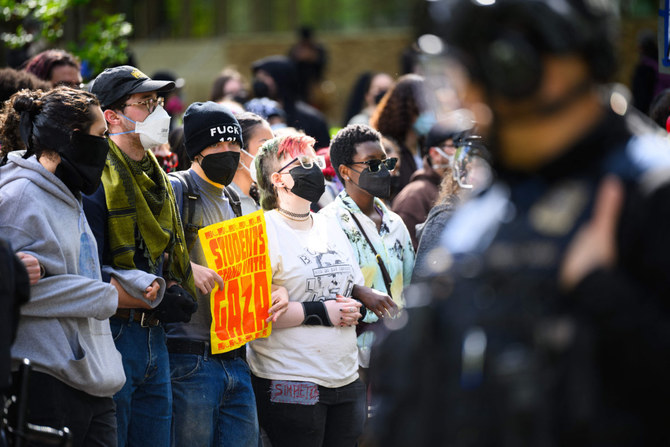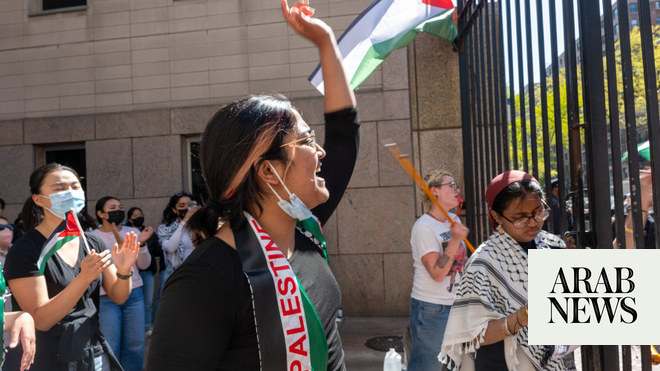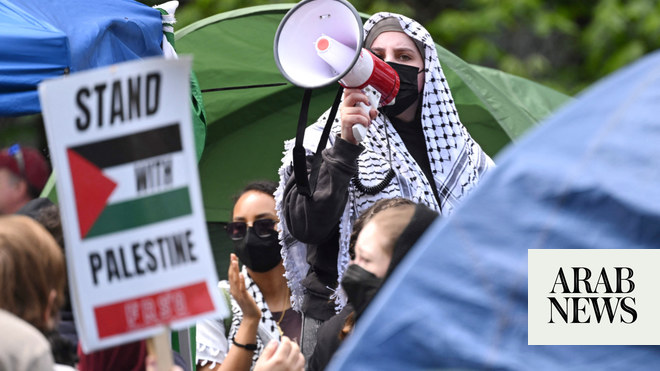
In 1968, student protests against the Vietnam War spread across American university and college campuses as a result of television reports exposing the public to the horrific atrocities committed against Vietnamese civilians. The images, the protests and the authorities’ excessive and violent response to them weakened the nation, disrupted that year’s presidential election process and, ultimately, helped force America to withdraw from Vietnam in 1973.
The Vietnam War was a humiliating defeat for America; the world’s most powerful nation succumbing to a supposedly weaker opponent. The cost in lives for both sides was enormous. More than one million Vietnamese, mostly civilians, and 58,000 American soldiers were killed. The cost for the American political system was also high.
The antiwar protests came at a crucial time for Americans, as they prepared to select a new president. The student protests played out dramatically at the Democratic National Convention, which was held in Chicago in August 1968. Hubert Humphrey had overcome a challenge from progressive fellow Democrat Eugene McCarthy to win the party’s nomination at the convention. But that victory was marred by the way America treated the protesters — young college students angry at the lies about the Vietnam War. Government officials vilified the students and police beat and arrested them.
What played out in 1968 is playing out again today and, coincidentally, is also having a significant impact on a presidential election. A replay of the 1968 clashes is possible at the 2024 Democratic National Convention, which will again be held in August in Chicago.
Protesters in 1968 demanded an end to the Vietnam War and the killing of civilians and soldiers. They chanted the popular protest refrain, “The whole world is watching.” The violent government and police response undermined America’s image worldwide. So violent was the confrontation between police and student protesters at the Democratic National Convention in 1968 that a national commission later created to examine what happened concluded it was “a police riot.”
The protests did not sway the Democrats to change their policies and they continued to support the war. Party leaders vilified the students and sought to punish, expel, fine and arrest them.
Both the Democratic and Republican parties supported the Vietnam War, much like today’s bipartisan support for Israel’s carnage in Gaza.
What played out in 1968 is playing out again today and, coincidentally, is also having a significant impact on a presidential election.
Ray Hanania
Then, Democratic President Lyndon Johnson increased America’s involvement in the war but was so harmed by the public outcry that he declined to seek reelection. Humphrey lost that year’s election to Republican Richard Nixon, who drove the country deeper into the Vietnam conflict during his first term but desperately sought “peace with honor” in an attempt to salvage his second term. Nixon was eventually forced to resign over the Watergate scandal.
Student protests continued beyond the 1968 election. On May 4, 1970, responding to student antiwar protests at Kent State University, the Ohio National Guard shot four students dead and injured nine others on what became a day of national shame. The killings provoked a nationwide student strike that closed hundreds of universities and colleges and Americans began wondering if supporting the war was just.
The US’ unjustified and violent response to the students weakened the country’s resolve and contributed to its humiliating withdrawal from Vietnam.
Now, more than five decades later, America is on the same path, with politicians and the police responding to campus protests against the American-Israeli carnage in the Gaza Strip with excessive violence, demonization and injustice.
Protesters against the Vietnam War were vilified as communists, outside agitators and terrorists and they were confronted with police violence and arrests. Today, the government and police are going even further, describing the protesters as terrorist sympathizers and, worse, falsely labeling them as antisemitic, even though many of them are Jewish.
Israel has massacred more than 34,000 Palestinians in Gaza and the conflict is slowly spreading into the West Bank. Politicians are using the same propaganda as 1968, asserting that outside agitators are behind the protests in a bid to discredit them and distract the public from the core principles driving the demonstrations.
Just look at who is screaming the loudest against the students and who is getting the most pro-Israel money.
Ray Hanania
The students have a clear message that the police and politicians do not seem to want to hear — a message that is similar to the one made by antiwar protesters in 1968: Stop the genocide. Stop the killings. Thousands of innocent women and children are being killed. End the war.
Instead of responding to the students’ concerns with empathy and understanding, many elected officials in Congress are leading the charge against the critics of the Gaza war. But that is not surprising. In 1968, the political opposition to the protest movement was organic. Today, the majority of the elected officials attacking the pro-Palestinian student movement have received millions of dollars in campaign funds from pro-Israel political action committees.
Just look at who is screaming the loudest against the students and who is getting the most pro-Israel money. Republican Sen. Mitch McConnell, for example, called the anti-Gaza war protesters “antisemitic" and “student Nazis.” McConnell has received nearly $2 million from pro-Israel PACs. Other senators attacking the student protesters, like Sens. Chuck Schumer, Ted Cruz and Marco Rubio, have received more than $1 million in pro-Israel PAC money.
History often repeats itself. As philosopher George Santayana famously wrote, “Those who cannot remember the past are condemned to repeat it.”
America’s continued funding of Israel’s war in Gaza, and its refusal to recognize the genocide being committed, will have the same lasting and negative impact on its politics as did the response to the anti-Vietnam War protests in 1968. The similarities are uncanny and cannot be ignored.
• Ray Hanania is an award-winning former Chicago City Hall political reporter and columnist. He can be reached on his personal website at www.Hanania.com.
X: @RayHanania












